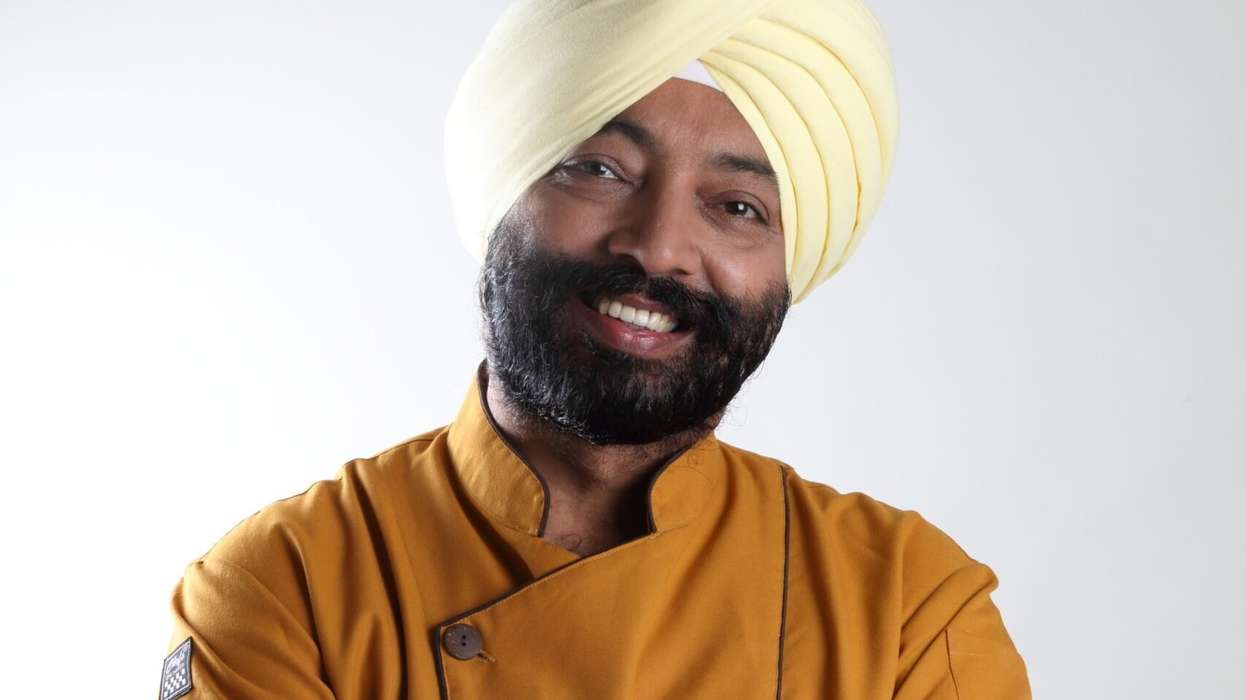HARPAL SINGH SOKHI may be a popular celebrity chef and restaurateur today, but his journey into cooking came by chance.
Originally preparing for an engineering career, he was encouraged by his brother to pursue hotel management for its job prospects. After joining the Institute of Hotel Management, he explored various career paths and ultimately decided to become a chef. From there, there was no looking back.
His culinary journey took him to the finest hotels and restaurants as an executive chef, followed by a long-running TV career on iconic shows like Khana Khazana. He later founded his own restaurant chain and even appeared on the popular dance reality show Jhalak Dikhhla Jaa 9.
Eastern Eye caught up with one of India’s top chefs to discuss his journey, TV career, and top cooking tips, including the importance of spices.
How do you reflect on the early days of your cooking journey?
My journey in the early days wasn’t easy. I didn’t come from a family background in the industry, so I had no guidance and didn’t know what a chef’s career would look like. I gained knowledge through friends, resources, and culinary books. Most of my salary, when I started as a trainee cook, went into buying books. I worked long hours with great chefs who taught me everything. Working with the best chefs helped me tremendously.
Tell us more about that.
When you work with the right people, you acquire knowledge faster, especially the basics of cooking and kitchen management. That had a huge impact on my development as a chef. Today, I can confidently take on any challenge, whether it’s in cooking or management, thanks to that early learning. I’m truly grateful for those tough initial years.
You’ve worked in top institutions, received mass media coverage, and collaborated with other great chefs. Your TV career has also been remarkable. What stands out the most for you?
There have been many memorable moments, from hosting the first culinary TV show in India in 1993 with Khana Khazana on Zee TV to becoming the host of some of the country’s most-loved shows. I’ve done many popular shows, like Turban Tadka, Desh Da Swaad, and now Laughter Chefs, which blends cooking with comedy. I’m thrilled to have been part of these unforgettable moments.
What other moments from your TV career stand out?
A particularly special memory was when I first appeared on TV and returned to my hometown. As we walked down the street, my father proudly told everyone, “He’s the man who was on television from a small town in Kharagpur.” Seeing the pride and joy in my father’s eyes was absolutely unforgettable and deeply emotional.
Which TV show did you enjoy hosting the most?
Although I’ve hosted many successful shows, Turban Tadka remains my favourite. That show gave me the nickname ‘Namak Chamak’ (salt and shine), and it even had its own catchy jingle on the channel Food Food. I hosted the show for nearly 10 years, created over 800 episodes, and built a loyal fanbase. It’s been one of the most beloved cooking shows across the country.
What keeps your passion for cooking alive?
Honestly, what keeps me going is my desire to keep learning. I believe learning should never stop, and that drives me every day. The knowledge I gain each day, especially about cooking, is invaluable. I’ve acquired cooking wisdom from people all over the world.
What’s a great cooking tip you can share?
Today, everyone wants to become a celebrity chef the moment they enter the kitchen. I see many people become popular on social media, but their basics are often lacking. My advice is to acquire solid foundational knowledge – don’t take shortcuts. Build your skills the right way.
How important is it to understand spices?
Understanding how spices behave while cooking is crucial. You need to know how each spice blends with other ingredients or how it changes when combined with others to create the right taste. If you understand spices well, the final product will be excellent. You should also be mindful of the quality of the spices, so they don’t harm people’s metabolism or negatively affect the dish.
What’s a good dinner party tip?
A good dinner party is all about great food, cooked the right way without unnecessary fuss. Choose ingredients and dishes based on your guests, the occasion, and the theme. Understanding these elements will help you plan the menu in detail and ensure the party is a success.
What’s your favourite dish to prepare?
It’s hard to pick just one favourite dish. I love cooking many things, especially when I’m in my restaurant, Karigari. I enjoy making dal, lemongrass butter chicken, kebabs, and halwa. There’s a lot that I love to cook.
If you could master something new in cooking, what would it be?
I’m currently learning more about grassroots-level cooking, focusing on India’s vast culinary offerings. I’m diving deeper into Ayurvedic cooking and tribal cuisine, as these are crucial aspects. We need to truly understand the richness of India’s culinary traditions, which are often overlooked. The cuisines of many Indian states are still underexplored, and this is something I deeply want to learn more about – especially ingredients offered by Mother Earth and how to use them in creative ways.




